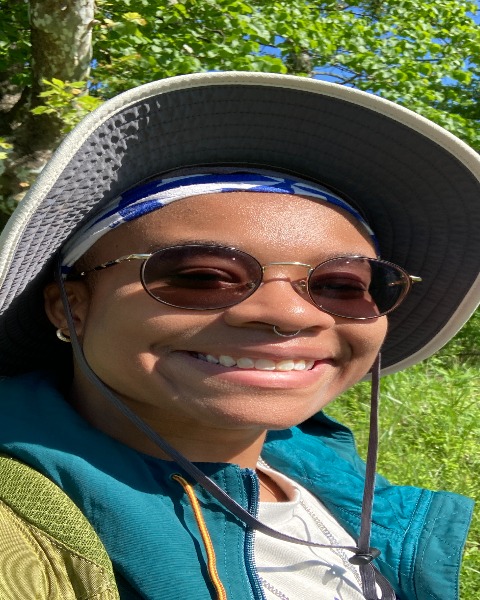Student Poster
Systematics, Evolution, and Biodiversity
Student Competition
Student
Undergrad Competition SysEB: Behavior
D3210: (1st Place) Just because you can, doesn't mean you should: Hand-fed Vanessa cardui have shorter lifespans than their trained and untrained counterparts

Skye Austin (they/them/theirs)
Undergraduate Student
Shenandoah University
Brambleton, Virginia- AD
Allyson Degrassi
Assistant Dean and Director of Innovation and Assistant Professor Environmental Studies and Biology
Shenandoah University
Winchester, Virginia - RF
Rebecca E. Forkner
Associate Professor
George Mason University
Fairfax, Virginia
Presenting Author(s)
Co-Author(s)
Successful captive breeding programs for threatened vertebrate species are well documented. However, methods from such programs may not apply to invertebrate species, which are not well understood despite many being in decline. In particular, Lepidopteran species throughout the United States are experiencing unprecedented rates of decline, and measures to prevent their extinction are imperative to protect critical ecosystem function. To test the success of different feeding strategies in captive breeding programs for Lepidoptera, Vanessa cardui larvae were raised to eclosion and then assigned to three separate feeding treatments -- “control” (no training, not hand fed), “trained” (trained, but not hand fed) and “hand-fed” (hand-fed only) -- to assess the impacts of a feeding regimen on longevity while in captivity. V. cardui were fed from eclosion until death; adult weight, duration of survival, total amount of solution consumed, and number of eggs produced were recorded for each treatment. Our results show that the individuals in the hand-fed treatment had the shortest lifespan and the lowest potential fecundity, while the control and trained treatments had longer lifespans and higher potential fecundity. We also found that both the control treatment and the training treatment drank at the same rate, suggesting that training Lepidopterans to a food source is not needed.

.png)


